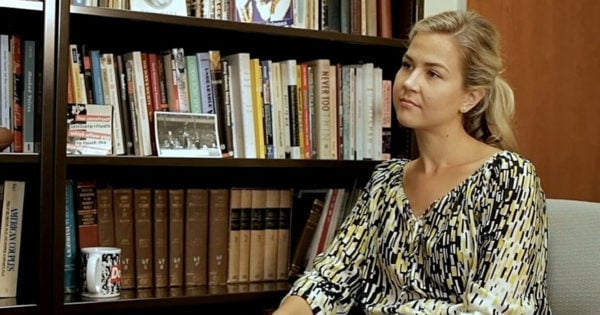One recent Monday night, my husband and I sat down to watch a documentary on men’s rights.
The film was The Red Pill, and we’d been hearing about the ‘scandal’ surrounding the film for months: an Australian premiere planned in Melbourne last year was cancelled after a petition calling the film ‘misogynistic propaganda’ collected over 2,300 signatures.
Sydney University pulled its funding for a student screening of the film, on the grounds that the film promoted violence against women and would put female students on campus at risk.

In early January, Queensland police investigated threats of violence against a Men's Rights group during a planned event for the film. One Twitter user wrote they hoped "someone shoots up that event Batman movie premiere style — dead MRAs (men's rights activists) — cool!"

Top Comments
"The Red Pill is largely infuriating, tone-deaf and offensive in its focus on Men's Rights, with those interviewed by filmmaker Cassie Jaye claiming that women "don't want equality" between the sexes and instead want "special privileges for women and girls"
Why is it offensive for men's issues to be viewed as equally deserving of support and awareness as women's? and those interviewees claims are true. There's evidence in women-only quotas, pushes for more women in high-paying comfortable male-dominated fields but not in male-dominated fields that have high risk and little reward and continual pish of the disproven wage-gap so as to get women more income than men without having to work equally as long as men do
>"maybe, just maybe, there's more to feminism than advancing the rights of women"
There's not. Feminists were the ones protesting and making death threats to silence this documentary because it advocates men's issues as equally important as women's
The author clearly saw the documentary but didn't watch it because if she did she would not leave thinking about women's roles or issues and feminism but thinking about men's issues and men's activism
"But I never realise how these assumed roles may have also been impacting on my husband and, yes, other men, too."
Really? You never thought before about how it might be stressful for men to be expected to provide for his family at any cost and protect them? You never thought about men being under that kind of pressure? It's honestly amazing to me that it never even occurred to you, and it's one of the reasons it's so offensive when feminists act like men are "privileged" and have it easy.
This is why I don't believe feminists when they say they want equality. If they were truly worried about equality of the sexes, they would have thought about this kind of thing before. But they are not focused on equality. They are only looking at problems from one side of the equation.